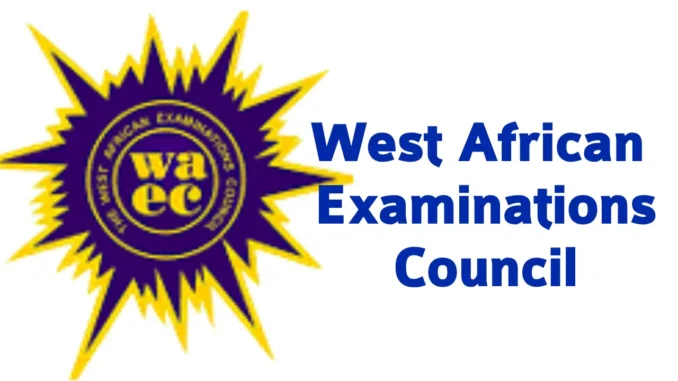
The West African Examinations Council (WAEC) has officially released the updated subject combinations for candidates preparing for the 2026 Senior Secondary Certificate Examination (SSCE).
Under the new directive, Science students are no longer permitted to register for Economics, while Arts students offering subjects such as Literature, Government, or History are equally restricted from taking Economics.
According to WAEC, Economics will now be exclusive to students in the Business (Commercial) Department, marking a significant adjustment to the examination structure for the 2026 academic year.
Overview of the New WAEC Subject Policy
WAEC stated that every student must register for a minimum of seven and a maximum of nine subjects, which must include English Language and Mathematics.
Generally, Science students focus on Physics, Chemistry, and Biology; Arts students take Literature and indigenous languages such as Yoruba, Igbo, or Hausa; while Business-oriented students concentrate on Commerce, Accounting, and Economics.
The examination body explained that the restructuring aims to align subjects more closely with students’ future academic and career pathways, while reducing cross-departmental mix-ups that often cause confusion in university admissions.
Three Major Areas of Study in WAEC
The WAEC Senior Secondary School Examination covers three core academic streams:
- Science
- Arts (Humanities)
- Commercial (Business Studies)
Despite these divisions, three subjects remain compulsory for all candidates irrespective of their area of study. These core subjects approved by the Federal Government are:
- English Language
- Mathematics
- Civic Education
WAEC Subject Combination for Science Students (2026/2027)
The WAEC subject combination for Science students is designed to test both theoretical knowledge and practical skills in core science areas. Laboratory-based practical sessions remain mandatory, but schools without lab facilities will receive approved alternatives.
Aside from the compulsory subjects, Science students may also include Further Mathematics, Technical Drawing, and a Nigerian Language (Yoruba, Igbo, or Hausa).
Recommended WAEC Subjects for Science Students:
- English Language
- Mathematics
- Civic Education
- Physics
- Chemistry
- Biology
- Geography
- Agricultural Science
- (Optional) Economics / Further Mathematics / Technical Drawing
WAEC Subject Combination for Arts Students (2026/2027)
Arts students’ subject combinations differ significantly from those in the Science stream. Their focus lies in literature, languages, religion, and social sciences.
Apart from the compulsory subjects, Arts students can also register for Arabic Studies, French, Music, or Commerce as electives.
Recommended WAEC Subjects for Arts Students:
- English Language
- Mathematics
- Civic Education
- Literature in English
- Government or History
- Christian Religious Studies or Islamic Religious Studies
- A Nigerian Language (Yoruba, Igbo, or Hausa)
- (Optional) Economics / Agricultural Science / French
WAEC Subject Combination for Commercial Students (2026/2027)
Commercial students specialize in business, management, and economics-related disciplines. They play a vital role in Nigeria’s education system, forming a large percentage of WAEC candidates each year.
In addition to core subjects, students may include Bookkeeping, Further Mathematics, or Agricultural Science as electives.
Recommended WAEC Subjects for Commercial Students:
- English Language
- Mathematics
- Civic Education
- Economics
- Commerce
- Financial Accounting
- Geography or Marketing
- Business Management
- A Nigerian Language (Yoruba, Igbo, or Hausa)
Conclusion
WAEC’s revised subject combinations for 2026 reflect a deliberate effort to streamline academic focus and ensure candidates prepare for university courses aligned with their chosen fields.
Students and schools are advised to carefully follow the new subject rules during registration to avoid disqualification or complications during admission processing.
Leave a Reply